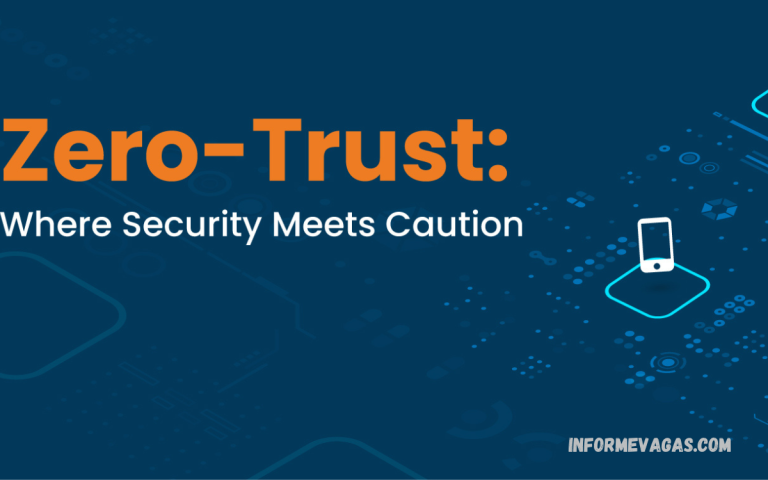Traditional security models that rely on perimeter defenses are no longer sufficient to protect sensitive data and critical systems. Cyber threats have become more sophisticated, with attackers often bypassing conventional security measures through phishing, ransomware, and insider exploits.
Zero Trust Security emphasizes granular access controls, multi-factor authentication, and real-time monitoring of network activity, ensuring that users only have access to the resources necessary for their role. By adopting this approach, organizations can significantly reduce the risk of data breaches, lateral movement by attackers, and unauthorized access to critical systems.
Understanding Zero Trust Security
Zero Trust Security is a cybersecurity framework that operates on the principle of “never trust, always verify.” It challenges traditional assumptions by treating every user, device, and application as potentially untrustworthy, regardless of location. Verification is continuous, access is minimal, and security policies are dynamic. Zero Trust eliminates implicit trust, requiring authentication and authorization for every access request, protecting sensitive data from unauthorized exposure.
Why Zero Trust Security Matters?
Modern organizations face evolving threats such as ransomware, phishing, and insider attacks. Android devices, widely used in corporate and personal environments, often store sensitive data and access enterprise systems. Without proper security controls, these devices can become gateways for attacks. Zero Trust Security ensures all devices, including Android smartphones and tablets, undergo strict verification before accessing resources, significantly reducing risk.
Core Principles of Zero Trust Security
- Continuous Verification: Every access request is evaluated in real time, considering user identity, device health, location, and behavior.
- Least Privilege Access: Users and devices are granted only the permissions necessary to perform specific tasks, reducing exposure to threats.
- Micro-Segmentation: Networks are divided into smaller zones to prevent lateral movement by attackers.
- Device Security Compliance: Devices, including Android systems, must meet security policies, such as updated software and enabled encryption.
- Real-Time Monitoring: Activities are continuously monitored, and suspicious behavior triggers automatic responses.
Implementing Zero Trust on Android
Android devices have become central to business operations, often holding emails, documents, and access to corporate apps. Implementing Zero Trust Security on Android involves:
- Multi-Factor Authentication (MFA): Requires users to provide multiple verification factors before accessing apps or networks.
- Device Posture Checks: Confirms Android devices are secure, up to date, and not compromised before granting access.
- Secure Application Management: Ensures only approved apps run on Android devices, limiting exposure to malware.
- Data Encryption: Protects sensitive information stored on devices or transmitted over networks.
- Network Access Control: Monitors connections from Android devices, applying restrictions based on risk assessment.
Read Also: Ransomware Trends 2025
Benefits of Zero Trust Security
- Enhanced Protection: Reduces the risk of data breaches and unauthorized access, especially on mobile platforms.
- Improved Visibility: Continuous monitoring provides detailed insights into device and user behavior.
- Compliance Support: Assists organizations in meeting regulatory standards such as GDPR, HIPAA, and CCPA.
- Adaptability: Supports modern cloud services, remote work environments, and mobile-first strategies.
- Minimized Attack Surface: By limiting access and segmenting networks, Zero Trust reduces opportunities for attackers.
Challenges in Adopting Zero Trust Security
Implementing Zero Trust is not without challenges. Organizations may face issues such as:
- Complex Integration: Integrating Zero Trust with legacy systems and diverse platforms like Android devices can be complex.
- User Experience Concerns: Frequent authentication may initially frustrate users.
- Continuous Monitoring Requirements: Effective implementation requires robust monitoring and response systems.
Despite these challenges, the security benefits far outweigh the difficulties. Strategic planning, phased deployment, and leveraging automation can ensure successful Zero Trust adoption.
Future of Zero Trust Security
The future of cybersecurity is undeniably tied to Zero Trust principles. With Android devices increasingly becoming endpoints for corporate operations, adopting Zero Trust Security ensures that sensitive data remains protected regardless of where users work or which devices they use. Integration with AI and machine learning will further enhance threat detection, making Zero Trust smarter, faster, and more adaptive to emerging risks.
Frequently Asked Questions
What are the core principles of Zero Trust?
Key principles include continuous verification, least privilege access, micro-segmentation, device compliance checks, and real-time monitoring.
How does Zero Trust improve data protection?
By limiting access, continuously monitoring activity, and enforcing strict authentication, Zero Trust reduces the risk of breaches and unauthorized access.
Can Zero Trust work with cloud applications?
Yes, Zero Trust is highly compatible with cloud environments, ensuring secure access to applications, regardless of location or device.
What challenges exist in implementing Zero Trust?
Challenges include integration with legacy systems, user experience concerns, and the need for continuous monitoring infrastructure.
How does Zero Trust handle insider threats?
Zero Trust continuously monitors user behavior and device activity, detecting anomalies that could indicate insider threats.
Is Zero Trust suitable for small businesses?
Yes, even small organizations can implement Zero Trust principles using cloud-based solutions and mobile device management for Android devices.
What is the future of Zero Trust Security?
The future involves AI-powered threat detection, stronger device compliance, and broader adoption across cloud, mobile, and remote work environments.
Conclusion
Zero Trust Security represents a paradigm shift in protecting digital infrastructure. By eliminating implicit trust, enforcing continuous verification, and implementing strict access controls, organizations can safeguard their networks, systems, and mobile devices, including Android platforms. As cyber threats continue to evolve, Zero Trust is not just a strategy but a necessity for modern enterprises aiming to secure their digital future.

